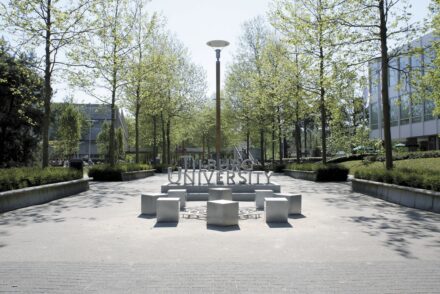University paid more than half a million to two PhD promoters
Hundreds of thousands of euros were paid to two Tilburg University professors for pulling PhD candidates over the finish line. The university is beginning to look like a PhD factory.
Dutch universities receive a so-called ‘promotion bonus’ for each successful PhD they produce. The amount of this bonus has climbed to 97.000 euros in recent years. At Tilburg University, contracts have been signed in the past which partly grant the promotion bonus to external parties that contributed to the completion of the PhD. This construction was conceived by Arie de Ruijter, the former dean of the Humanities faculty. He ordered the payment of over half a million euros to two companies owned by his family members, a beauty salon and a research and consultancy company.
This summer, it became clear that De Ruijter closed similar contracts with professors. Professor of computer science Jaap van den Herik had received over 224.445 euros for successful PhD graduates. The university refused to pay his most recent bill for 75.000 euros, however, arguing that the agreement made in the past was an undesirable one. Van den Herik then filed a lawsuit against the university, which he won. The university must pay Van den Herik, because that was the agreement.
Other contracts
The fraud case of Arie de Ruijter was brought to public attention by the investigative journalism radio program Argos. At the time, the university was also looking into other contracts De Ruijter had in place, including the one he made with Van den Herik. Argos recently uncovered the existence of another dubious contract, between the university and Ruben Gowricharn. Between 2010 and 2017, during which he was an honorary professor at Tilburg University, Gowricharn received nine payments of 35.000 euros and one payment of 24.000 euros for successful PhD projects.
Taken together, the payments made to Van den Herik and Gowricharn for producing PhDs amount to 638.445 euros.
Gowricharn not only received payments from the university, he also required payment for his services from PhD candidates themselves. He offered PhD supervision through his company, ‘de Promotiekamer’, where he supervises external PhD candidates wishing to obtain a doctorate in their spare time. The website states that the costs for ‘teachers and infrastructure’ during the first year are 6.200, and 4.700 euros for each subsequent year. People from Suriname or the Dutch Caribbean islands pay a reduced annual fee of 3.000 euros.
In the recent Argos item ‘Tilburg University built a “PhD factory”’, one of the interviewees was professor of psychology John Rijsman. Rijsman was a member of many of the committees for Arie de Ruijter’s PhD candidates, and he supervised more than 156 PhD trajectories himself over the course of his career. The university had given him exemption from most professorial tasks, so that he could largely focus on the supervision of external PhD candidates. In 2014, Rijsman was offered 12.500 euros for each completed PhD he supervised. Not wanting to subject himself to perverse incentives, he declined the offer.
Measures
Tilburg University stated that undesirable contracts have now been terminated or phased-out more rapidly. Measures have also been taken to counter malpractices in PhD trajectories. For example, rules regarding the composition of PhD committees have been sharpened, second supervisors have been made obligatory, and external PhD candidates must be registered with a graduate school at least two years prior to their intended doctoral graduation date.
Anne de Vries, who is the president of the PhD candidates Network of the Netherlands (PNN) and a doctoral candidate at Tilburg University, said in the Argos radio item that dubious contracts are probably a nation-wide phenomenon. “At PNN, we suspect that this is not a problem unique to Tilburg, but that similar practices will be found if you take a closer look at other universities.” Universities, too, are subject to a perverse incentive: a professor who pulls a large number of PhD candidates over the finish line will earn the university hundreds of thousands of euros, if not millions. De Vries thinks universities should be alert to dubious practices, and she urges the national government to invest in improving the quality of research rather than primarily promoting the quantity of it.






